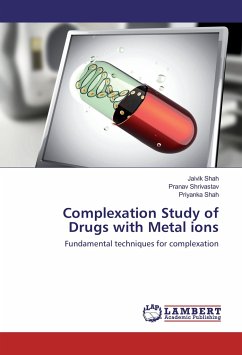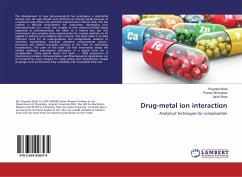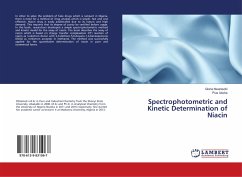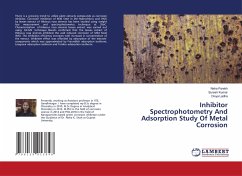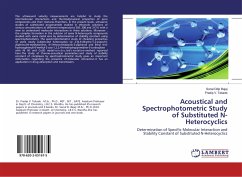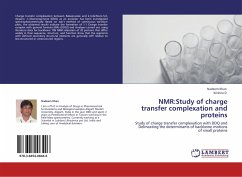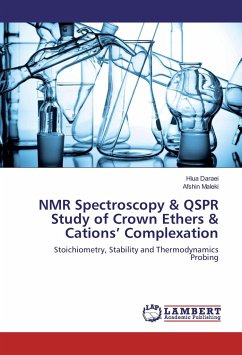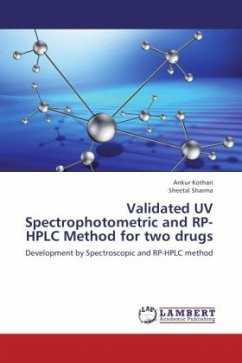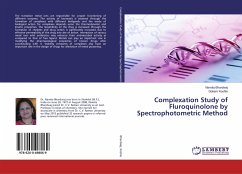
Complexation Study of Fluroquinolone by Spectrophotometric Method
Versandkostenfrei!
Versandfertig in 6-10 Tagen
41,99 €
inkl. MwSt.

PAYBACK Punkte
21 °P sammeln!
The transition metal ions are responsible for proper functioning of different enzymes. The activity of biometals is attained through the formation of complexes with different bioligands and the mode of biological action for complexes depends upon the thermodynamic and kinetic properties. The lipophilicity of the drug is increased through the formation of chelates and drug action is significantly increased due to effective permeability of the drug into site of action. Interaction of various metal ions with antibiotics may enhance their antimicrobial activity as compared to that of free ligand. ...
The transition metal ions are responsible for proper functioning of different enzymes. The activity of biometals is attained through the formation of complexes with different bioligands and the mode of biological action for complexes depends upon the thermodynamic and kinetic properties. The lipophilicity of the drug is increased through the formation of chelates and drug action is significantly increased due to effective permeability of the drug into site of action. Interaction of various metal ions with antibiotics may enhance their antimicrobial activity as compared to that of free ligand. Metals can play an important role in modifying the pharmacological properties of known drugs after coordinating with it. Stability constants of complexes also have an important role in the design of drugs for alleviation of metal poisoning.



